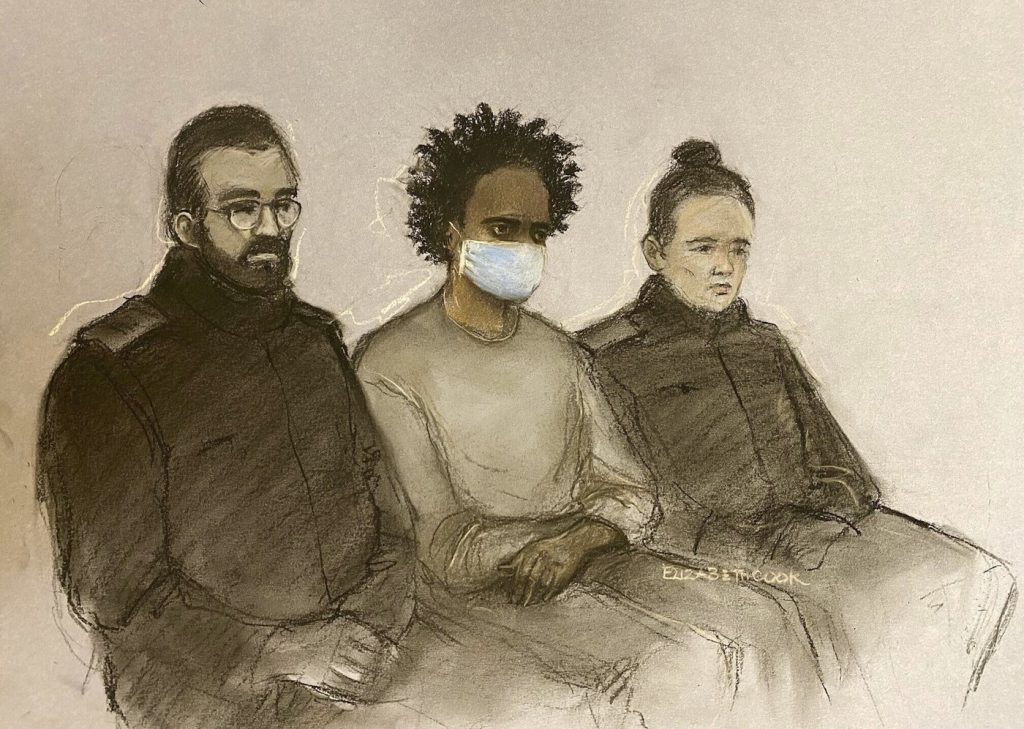LONDON (AP)—In the aftermath of a tragic incident where 18-year-old Axel Rudakubana fatally stabbed three young girls at a children's dance class in Southport, England, authorities are grappling with significant questions regarding their failure to recognize the threat he posed. Six months following this horrifying event, new revelations about Rudakubana's history and behavior have surfaced, detailing multiple interactions with law enforcement and government agencies.
Rudakubana, who was born in Wales to Rwandan immigrants, pleaded guilty to the murders of three girls aged 6 to 9 and attempted to kill 10 additional individuals during a Taylor Swift-themed dance and yoga class on July 29, 2024. His actions spurred widespread unrest and rioting across the UK, especially following erroneous reports identifying him as an asylum-seeker who had recently arrived by boat.
The investigation into Rudakubana’s background has unveiled a troubling history of violence and alarming behavior. He had been previously convicted of assaulting a classmate with a hockey stick and had been reported to counterterrorism officials multiple times. Notably, he had expressed an interest in school shootings and had been referred to the government’s anti-extremism program, Prevent, on three occasions—first as a minor at age 13 and again in 2021.
Despite these referrals and the intervention of local authorities, Rudakubana's case did not result in any significant action. Home Secretary Yvette Cooper pointed out the failure of multiple state agencies to adequately identify the risks he posed, questioning, “How did he fall through so many gaps?” The Prime Minister, Keir Starmer, has called for a complete reevaluation of Britain's counterterrorism strategy, emphasizing the need to adapt to the changing landscape of threats, particularly those posed by individuals rather than organized groups.
Rudakubana’s behavior over the years had raised numerous red flags, including five prior police visits to his home due to unspecified concerns. He had received mental health support but reportedly disengaged from these services. His consistent issues included being expelled from school for bringing a knife, further underscoring the urgent need for a more proactive approach to identifying and mitigating threats from individuals with a history of violence.
Rudakubana's fixation on violent ideologies became evident when police discovered troubling material during a search of his home, including documents related to Nazi Germany and the Rwandan genocide, as well as details about producing the biological toxin ricin. This alarming background led to discussions among experts about the failures in the current approach to counter-extremism, with many highlighting that existing frameworks have not evolved to tackle the rise of non-ideological, violent extremism.
Experts emphasize that in the aftermath of the September 11 attacks, focus has predominantly been on organized groups with defined political agendas, while neglecting to address the rising trend of young people drawn to extreme violence facilitated by online content. This case illustrates a critical gap in recognizing the potential for violence among isolated individuals who may not adhere to traditional extremist ideologies or groups.
In light of this tragedy, proposed changes to policies and legislation are being discussed. Prime Minister Starmer has suggested revising terrorism laws to encompass non-ideological youth violence, a move that has received mixed reactions. Additionally, the government aims to tighten regulations regarding the sale of knives, mandating retailers to request two forms of identification from buyers. These legislative measures come as a response to the findings that despite his violent history, Rudakubana was still able to easily purchase a knife online.
Moreover, recent efforts have been made to implement online safety laws that push tech companies to monitor and regulate extremist content on their platforms. However, experts warn that while regulatory frameworks are necessary, truly effective enforcement will be challenging due to the nature of online platforms and the creativity of individuals seeking out harmful content.
The case of Axel Rudakubana serves as a grim reminder of the complexities of modern violence and the urgent need for a reassessment of how societies identify, track, and respond to potential threats posed by individuals who may not fit traditional profiles of terrorists.










